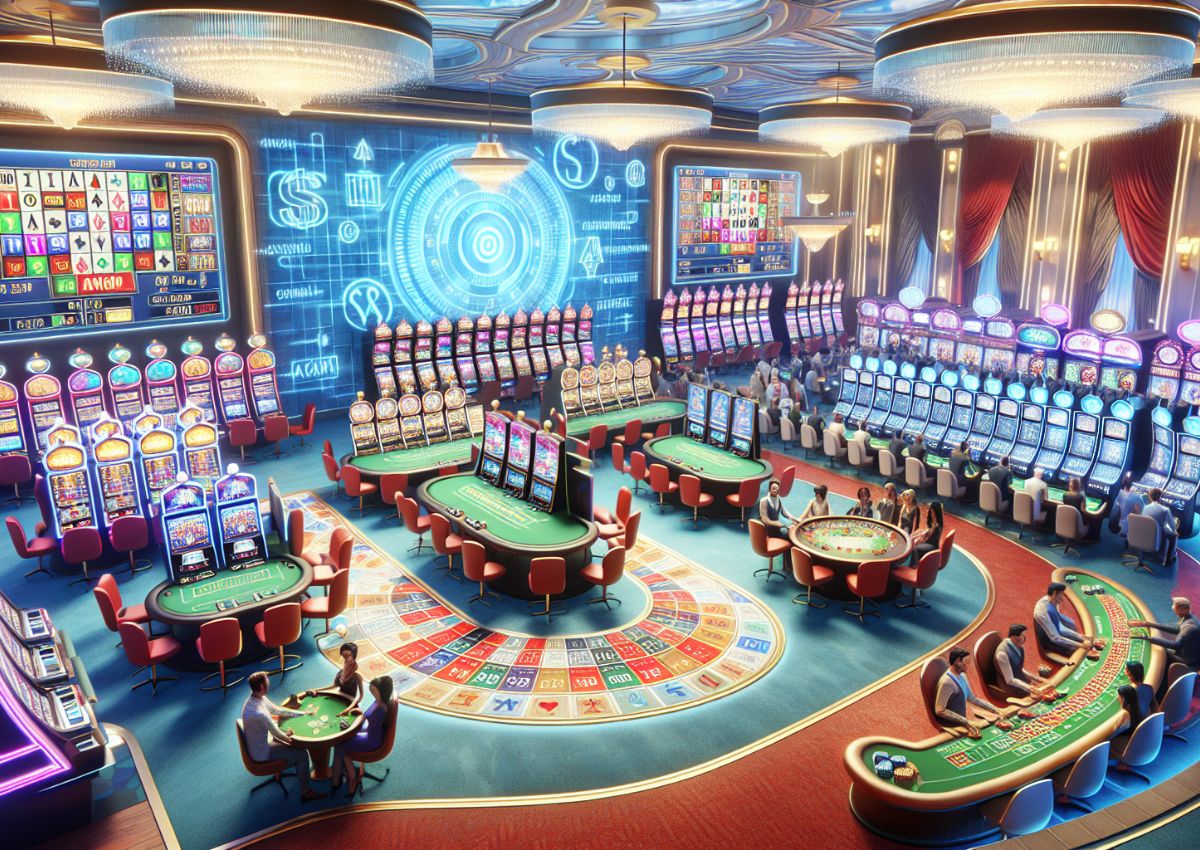
The realm of gambling games is constantly evolving, shaped by shifting laws, technological advancements, and evolving market demands. While governments and gaming commissions strive to create a safe and just space for players, the framework of gambling laws is undergoing significant modifications. Understanding these changes is crucial for both sides of casino operators and players looking to navigate the exciting yet complicated world of gaming.
In recent times, various regions have proposed and enforced new regulations designed to improving the protection of players while promoting ethical gaming. These updates not only affect the varieties of gambling games offered but also how they are marketed and accessed. In this article, we will examine the most recent regulation changes, their consequences for the industry, and what players can look forward to as they engage with their preferred gambling games.
Revised Governance Structures
Current trends in gaming rules are influencing the future of casino games across multiple jurisdictions. Regulators are recognizing the necessity for a robust governance system that not just shields players but also ensures equitable play and accountable gaming. These systems are crafted to tackle issues such as online gaming, digital currencies, and advancements in technology, reflecting the changing setting of the casino industry.
One significant development is the implementation of stricter rules regarding clarity and consumer security. Gambling venues are now obligated to provide clear information on odds, winnings, and the associated risks related to gaming. This change aims to empower gamblers by allowing them take informed decisions while also aiding to combat gaming addiction through accountable gaming practices. Gaming providers are expected to set up self-restriction systems and offer resources for individuals seeking support.
Additionally, emerging laws are being implemented to emerging technologies such as virtual reality and blockchain in gaming activities. Oversight bodies are establishing frameworks to guarantee that these innovations maintain integrity and justice while also safeguarding player data. As the industry evolves, regulators are adapting to verify that innovations enhance the casino experience while protecting both gamblers and providers.
Impact on Casino Game Diversity
The recent updates in game regulations have opened fresh avenues for casino games, allowing for enhanced innovation and difference within the field. As authorities modernize their standards, creators are motivated to create unique gameplay experiences that address a broader market. This has resulted in a vibrant array of innovative games, incorporating diverse topics, styles, and features that were historically overlooked or limited by stricter policies.
With a more flexible set of rules, casinos are now capable to try out different game styles, including games of skill and engaging experiences. This transition has produced a rise in combined games that mix classic casino components with current gameplay trends, such as digital gaming and augmented reality. By broadening the variety of games available, casinos can attract not only seasoned players but also recreational gamers who may lean towards less conventional options.
Moreover, the evolution of rules has emphasized openness and fairness in games, which could foster higher trust from players. As a benefit, consumers are more inclined to explore a broader selection of game options, understanding they are engaging with services that follow updated standards. This growing belief enhances player participation and can ultimately boost financial success as more diverse selections cater to different preferences and groups in the gambling landscape.
Upcoming Transitions in Oversight
As the gaming landscape changes, oversight bodies are progressively focused on adopting technology-based solutions to enhance clarity and justice. casino online non AAMS The incorporation of distributed ledger technology into casino games is expected to gain ground, allowing for greater oversight of operations and ensuring that activities remain just and tamper-proof. This transition could lead to a compliance framework that welcomes these advancements, promoting faith among players and businesses alike.
In addition to digital integration, there will likely be a greater emphasis on prudent gaming methods within the oversight environment. Authorities are anticipated to implement tougher measures to promote gambler protection, including compulsory self-exclusion systems and robust age verification systems. This shift aims to safeguard susceptible populations while ensuring that the enjoyment of gambling activities is upheld for responsible gamblers.
Lastly, as internet gaming continues to expand globally, alignment of regulations across different regions will become a critical need. Countries may strive to collaborate more closely on unified standards for licensing, operation, and taxation. This could lead to a more simplified regulatory process for international operators, fostering a greater acceptance of digital casino games while maintaining robust of participant protection and fairness in the gambling industry.